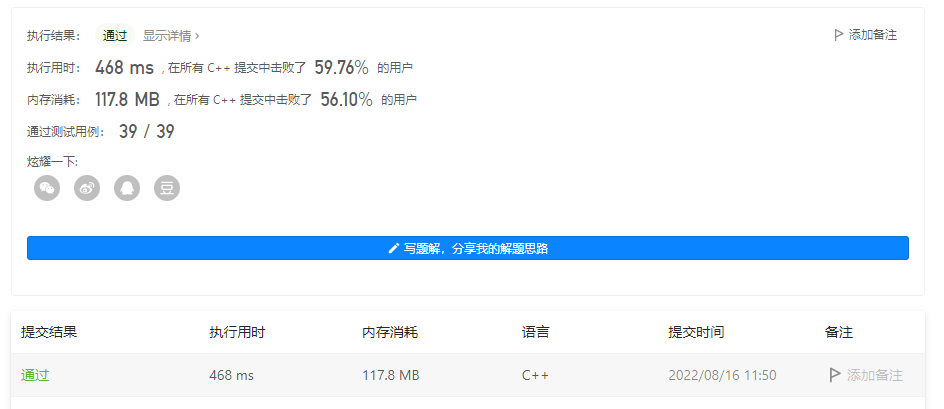# time; O(nlogn) for sorting and pushing and poping to a pq with max size of n
# space: O(n), for pq
class Solution:
def getOrder(self, tasks: List[List[int]]) -> List[int]:
sorted_tasks = []
for i, task in enumerate(tasks):
sorted_tasks.append((task[0], task[1], i))
sorted_tasks.sort()
time = sorted_tasks[0][0]
pq = []
res = []
i = 0
while len(res) < len(sorted_tasks):
while i < len(sorted_tasks) and time >= sorted_tasks[i][0]:
heapq.heappush(pq, (sorted_tasks[i][1], sorted_tasks[i][2]))
i += 1
if pq:
next_process, next_index = heapq.heappop(pq)
res.append(next_index)
time += next_process
# no tasks in the pq, skip to next available
elif i < len(sorted_tasks):
time = sorted_tasks[i][0]
return res
1834. 单线程 CPU
入选理由
暂无
题目地址
https://leetcode-cn.com/problems/single-threaded-cpu/
前置知识
题目描述
现有一个单线程 CPU ,同一时间只能执行 最多一项 任务,该 CPU 将会按照下述方式运行:
如果 CPU 空闲,且任务队列中没有需要执行的任务,则 CPU 保持空闲状态。 如果 CPU 空闲,但任务队列中有需要执行的任务,则 CPU 将会选择 执行时间最短 的任务开始执行。如果多个任务具有同样的最短执行时间,则选择下标最小的任务开始执行。 一旦某项任务开始执行,CPU 在 执行完整个任务 前都不会停止。 CPU 可以在完成一项任务后,立即开始执行一项新任务。
返回 CPU 处理任务的顺序。
示例 1:
输入:tasks = [[1,2],[2,4],[3,2],[4,1]] 输出:[0,2,3,1] 解释:事件按下述流程运行:
示例 2:
输入:tasks = [[7,10],[7,12],[7,5],[7,4],[7,2]] 输出:[4,3,2,0,1] 解释:事件按下述流程运行:
提示:
tasks.length == n 1 <= n <= 105 1 <= enqueueTimei, processingTimei <= 109